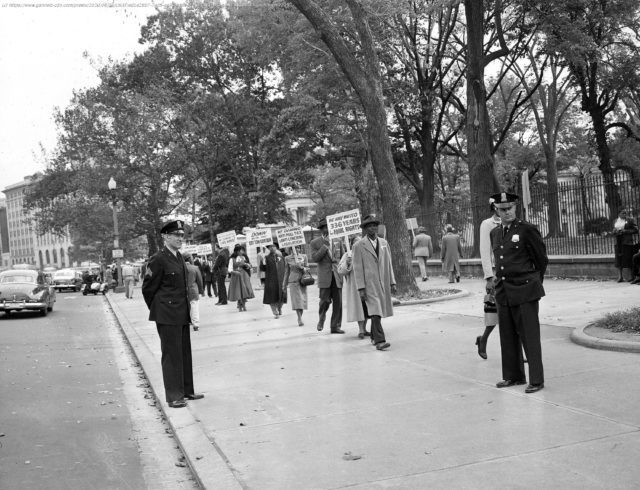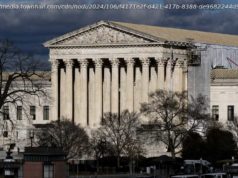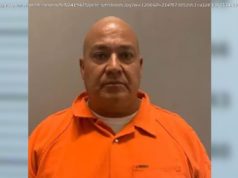As thousands of protests against the deaths of black men, women and children have broken out across the country in recent weeks, many black demonstrators and faith…
As thousands of protests against the deaths of black men, women and children have broken out across the country in recent weeks, many black demonstrators and faith leaders have invoked the name of Emmett Till to suggest the nation could be in the midst of a defining moment that could inspire societal shifts.
„These two tragedies showed the tipping point of society,“ said Benjamin Saulsberry, museum director at the Emmett Till Interpretive Center in Sumner, Mississippi, and a native of West Tallahatchie County, of Till’s and Floyd’s deaths. „The Emmett Till murder was not the first murder. There were so many others. But it was the tipping point.“
Till, a fourteen-year-old Chicago resident, was lynched in August 1955 while visiting family in Money, Mississippi. After whistling at a white woman, Till was kidnapped by several white men, who tortured and killed him. His body was discovered in the Tallahatchie River, with a 74-pound cotton gin fan barb-wired to his neck.
Two men were later acquitted on murder charges, and a grand jury refused to indict them on kidnapping charges. Years later, the white woman involved in the incident said she had been lying when she claimed Till had touched her.
Till’s mother, Mamie Till-Mobley, forced the world to take a hard look at racism in the U. S. when she decided to hold a public, open casket viewing in Chicago. Over the course of four days, tens of thousands of men, women and children waited in line to view Till’s body. Till-Mobley also gave permission to the black press to photograph her son’s mutilated remains and circulate the images in black newspapers and magazines.
„Because his mother had the divine strength to choose to have an open casket viewing, it forced America to see, for the first time, what American racism actually looked like,“ Saulsberry said.
The Rev. Jesse Jackson would later call Till’s murder the „big bang“ of the Civil Rights Movement. Mississippi civil rights leader, Amzie Moore, called Till the catalyst for the movement. Rosa Parks said Till was on her mind the day she wouldn’t give up her seat on that Montgomery bus. His death spurred protests in big cities, as well as around the world, and drove a generation of black Americans to launch sit-ins to end Jim Crow segregation. It sparked a nine-year battle for the Civil Rights Act.
This isn’t the first time Till’s name – part of a long lineage of black Americans dying at the hands of police and vigilantes – has been invoked during periods of uprisings in the U. S. It was heard on the streets of Los Angeles in 1992, when demonstrators protested the acquittal of four police officers accused of beating Rodney King. And in Ferguson, Missouri, in 2014, when residents took to the streets to protest the fatal shooting of Michael Brown at the hands of a white cop.
And in recent weeks, protesters marching against the deaths of Arbery, Taylor and Floyd have chanted Till’s name. Arbery, 25, was chased down and fatally shot by three white men while jogging near his Georgia home in February. Taylor, 26, was fatally shot by police in March after they entered her Louisville apartment as part of an alleged narcotics investigation. Floyd, 46, died in Minneapolis on Memorial Day when he was pinned to the ground by officers after being accused of passing a fake $20 bill at a grocery store.
„George Floyd dying on TV with a knee on his neck was our Emmett Till moment where we see the brutality and the lack of humanity that we can literally not ignore any longer,“ John Gray, pastor of Relentless Church in Greenville, South Carolina, said to parishioners earlier this week.
Start
United States
USA — Criminal Emmett Till's lynching ignited a civil rights movement. Historians say George Floyd's...






